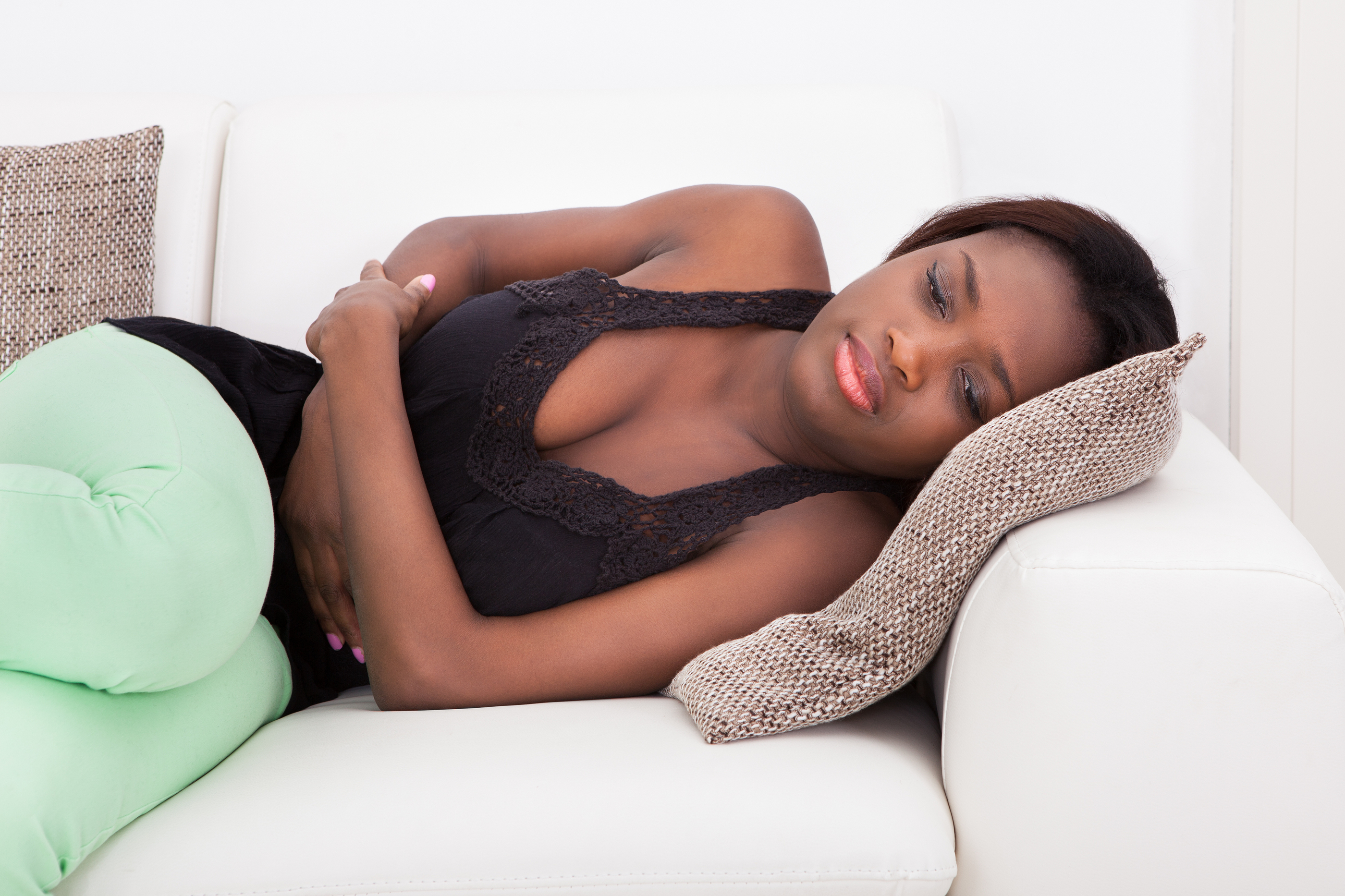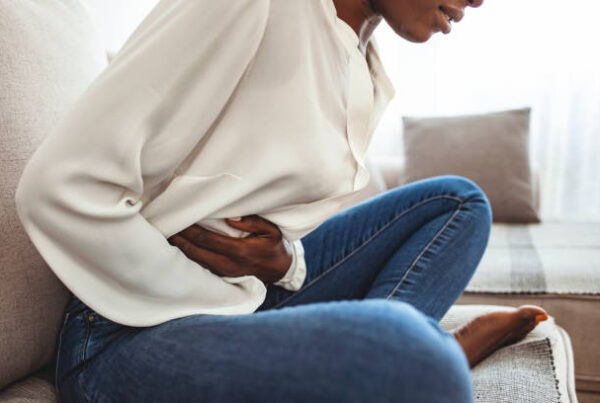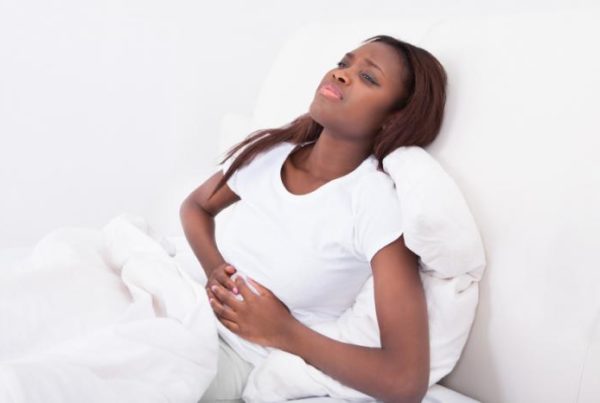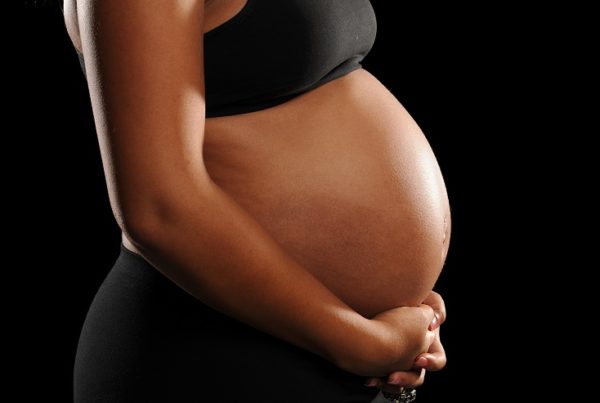When tissue that line your uterus grow elsewhere in your abdomen, you could experience a number of sexual problems. Endometriosis occurs when endometrial tissue, which lines the uterus, is found outside the uterus. The tissue might be found on the ovaries, Fallopian tubes, bladder, rectum, or intestines. It can also appear on the peritoneum, the membrane that lines the abdominal cavity.
Rarely, endometriosis implants can occur outside the pelvis, on the liver, in old surgery scars, and even in or around the lung or brain. These implants, while they can cause problems, are benign (not cancerous).
Endometriosis affects a woman’s reproductive system and women between 15-44years are prone. It is commonly found in women with infertility challenges as the endometrial cells can grow in more than one location.
In the month of March 2019, Endometriosis Support Group Nigeria (www.esgn.org) is identifying with millions of women world-wide and particularly in society who are faced with this condition that is misunderstood and often misdiagnosed by medical practitioners and also often mispronounced.
When such women have their monthly period, the blood and tissue shed from the endometrial growth has no way of leaving their body, resulting in internal bleeding, inflammation that may result in pain, adhesions and bowel problems.
Endometriosis also causes damage and blockage to the Fallopian tube by impeding the journey of the eggs down the fallopian tube to the uterus, hence leading to infertility.
If you suffer endometriosis, you would know that pain is commonly associated with the condition. There could be painful intercourse, painful menstruation, abdominal and back pain, ectopic pregnancies and infertility. Without mincing words, the main symptom of endometriosis is chronic pelvic pain, which may worsen before and during your menstrual period.
The kind of sexual problems caused by endometriosis varies. Many aspects of day-to-day life, in addition to sex, can be affected by endometriosis, such as work, hobbies, and socializing. It can cause sexual pain, especially if the tissue is near the vagina.
One of the predominant symptoms of endometriosis is painful sex also known as dyspareunia. Some women describe it as a stabbing pain and sexual intercourse can irritate the growths and pain may get worse as penetration deepens. Sometimes, the pain remains after intercourse. The anticipation of pain can cause tension, adding to a cycle of pain.
Chronic pain may make you irritable and reclusive. Endometrial lesions in the vagina seem to cause more sexual problems than lesions found elsewhere, possibly because this area is more stimulated during intercourse.
Depending on where the endometrial tissue is located, you may experience pain when urinating or having a bowel movement, along with decreased sexual satisfaction, less desire, and fewer orgasms.
Many women with endometriosis often experience physical pain when engaging in sex, which is sometimes too personal to express to their gynaecologist. But it is important to take into account as it can help determine the level of pain and the location of the endometrial lesions.
Painful sex is a personal matter and it is difficult to discuss the physical challenges experienced during sex.
It could help if as a woman, you understand how endometriosis causes pain during sex. The area behind the uterus is lined by the smooth peritoneum, the skin-like sheet of tissue that covers the uterus and vagina in front, and the rectum in the back, keeping the rectum, vagina, and uterus free from each other.
Endometriosis frequently adheres the vagina to the rectum. The pain caused by endometriosis during sex is deep and comes from the inflammation and fibrosis fusing the front wall of the rectum to the back wall of the vagina.
Movement and expansion of the upper posterior vagina behind the cervix normally occurs during sex, but not if endometriosis is present. The pain can be more intense in certain sexual positions than in others, depending on exactly where the endometriosis is located and how advanced it is. If it’s widespread, the woman hurts no matter what position she’s in.
Women experiencing pain during sex have been known not to complain and tolerate the pain to a high degree perhaps because they do not want to interrupt the intimacy or are afraid of rejection. Sometimes a woman will even subconsciously refuse to accept that sex is painful because she fears how her partner will react. She may not want to be accused of not returning love or intimacy, or of having no interest in her partner. However, this is not the case. It is important for you to know the pain is not normal and it is not in your head, but it is a real symptom of the disease that must be taken into account and resolved.
It is not uncommon or surprising that relationship problems are common for couples facing endometriosis. For instance, you may be worried about not pleasing your partner sexually and feel inadequate or insecure. It is necessary to carry you partner along so that he does not feel rejected. He should understand your anxieties and concerns along with the pain and fear.
Like many sexual problems, endometriosis can be difficult to talk about, but the conversation is worthwhile. When you open up, share concerns, reassure each other, you build confidence and commit to working together. Counselling or sex therapy may also help. If necessary, consult a qualified therapist. For men whose partners are suffering from endometriosis, it is crucial to offer support. This means being mindful and listening if they say they are in pain. It can also mean accompanying them to gynaecologist. Partners of endometriosis patients should make sure the woman knows that they are not alone in this battle and that she has the help and support of her loved ones.
However, there is good news. Depending on the severity of your endometriosis, the pain that you experience can be adequately managed. There are actually steps that you can take to make sex more comfortable and enjoyable.
One thing you may try out is different sexual positions to find which one is most comfortable.
Positions such as side-by-side may be more comfortable because it puts less pressure on the endometrial growths. You might be having more pain with deep penetration, so a position that gives you more control helps. It may also find it helpful to plan sex outside your periods. When your hormone levels fluctuate, the endometrial tissue can become more inflamed and irritated and sex may be more painful before and during your period.
Most women who have it, do not have symptoms and of those who experience symptoms, the common symptoms are pain (usually pelvic) and infertility. Some women experience pain or cramping with intercourse, bowel movements and/or urination. The pain intensity can change from month to month, and vary greatly among women. Some women experience progressive worsening of symptoms, while others can have resolution of pain without treatment.
Endometriosis can be one of the reasons for infertility in otherwise healthy couples. It is more common in infertile, compared to fertile, women. However, the condition usually does not fully prevent conception. Most women with endometriosis will still be able to conceive, especially those with mild to moderate cases.
Assisted reproductive techniques may also be used when appropriate sometimes in combination with surgical therapy. The surest way to diagnose endometriosis is by laparoscopy and the goals of endometriosis treatment may include pain relief and/or enhancement of fertility.
Laparoscopic removal of endometrial lesions is the gold standard for conservative surgical treatment for endometriosis. However, in cases of painful sex, it is usually necessary to focus on preventing endometriosis infiltrating the front and rear parts of the sexual organs. By focusing on these areas, upon removal of the endometriosis through excision surgery, women experience improvements in painful sex symptoms as well as the quality of their sex life.






I am becoming to understand what endometriosis is all about now, I was thinking it’s cancerous but now I know it’s not.
Also after reading today’s article on endometriosis, I got to know that some women do have pains during sex which I am also a victim but I observed lately that my pain has reduced, I no longer have pain during but after now, my vagina peppers me and can’t sit or walk very well for a while
I always use felvin and paracetamol before my period comes immediately I notice the pain because it’s really a very killing pain and through out, I use this medication till I am done. After my period, this fluid comes out as if I am menstruating, it’s as if I am urinating on myself at times too, I don’t know the reason for this and it do last for some week (2 – 3) before it stops which I also use sanitary pad for as well. I think I need some attention and also wish to have my own children because my husband is not supporting the idea of adopting any child at all as I am yet to conceive.
Thank you Norfica Hospital for this privileged.